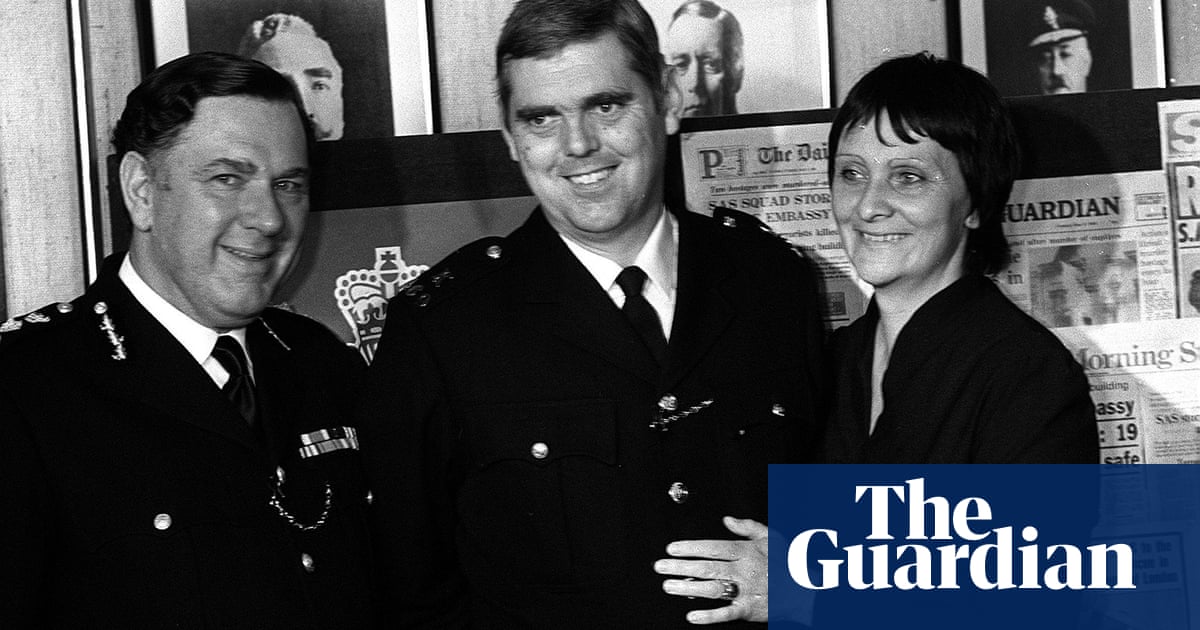The “Signalgate” scandal confirmed what Europeans already knew. The Trump administration’s disdain for Europe is deep and the transatlantic fracture is structural. While our leaders publicly play down the significance of the unravelling that is manifestly under way, few actually sound as convinced in private.
Hopes persist that Europe can prevent the most extreme manifestation of the collapse in the relationship, be it an invasion of Greenland, the withdrawal of US forces from Europe’s Nato member states or an all-out trade war. Most urgently, European leaders are focused on ensuring that if (or perhaps when) the US throws Kyiv under the bus, it is Europe collectively that will somehow succeed in securing a free, independent and democratic Ukraine. But there should be no illusion that this will happen by working in synergy with Washington or even with its tacit approval.
Signalgate was both unsurprising and shocking. It was unsurprising because the personal animosity towards European countries on display in the US national security team’s supposedly confidential group chat is not very different to what administration officials have said publicly. Think of JD Vance at the Munich Security Conference in February, the US special envoy Steve Witkoff, in his interview with Tucker Carlson, or Donald Trump himself in his ceaseless declarations and social media posts. There is remarkable consistency between the private and public pronouncements: Washington considers Europe to be obsolete, arrogant and parasitic.
What is shocking, nevertheless, is that the US does not just view Europe as moribund. Trump’s officials seem to want to contribute to its death. Regardless of what one thinks of the Houthi threat in the Red Sea, it is US policy that attacking the pro-Iranian militia is in its national security interest. But as Vance and Pete Hegseth made clear on the group chat, the US also thinks that attacking the Houthis would benefit Europeans, and this is reason enough to question any attack. Helping Europeans, in other words, is seen as such a downside it could outweigh the direct upside for the US itself of dealing with a perceived threat. It is the visceral hatred of Europeans contained within this twisted train of thought that is shocking.
This active disdain has three major policy implications for Europe. First, trade. This week, Trump is set to launch his trade war on countries he believes are “screwing” the US economy. No amount of sympathy or historic friendship will mitigate the US-EU dimension of this war. Quite the opposite. However, managing trade policy for the 27 governments is the EU’s legal responsibility and the bloc has a combined economic weight the US cannot ignore. There will be pain, but in a tit-for-tat conflict it will be reciprocal. If Europeans stick together on trade, as on the regulation of technology, the US will be unable to behave in a predatory way, however irrational its hatred. Washington will be forced to act transactionally when it comes to Brussels and it will eventually make a deal.
Second, Greenland. Here, the US will not stop. Trump has said time and time again that Greenland will be his. Vance’s provocative trip to the Arctic island, and his scolding of Denmark for having “not done a good job” in looking after Greenland’s security over decades, indicate that Washington’s attempted coercion will only intensify.
But the controversy also suggests that European pushback, in this case starting with Greenland itself, also works. After a chorus of criticism, the trip was hastily rejigged to leave out the capital Nuuk and include only a “troop visit” to the remote US military base in the far north of the territory. The Danish prime minister, Mette Frederiksen, while initially timid in her reaction to the Trump administration’s encroachments, has started speaking out more volubly; last week accusing the US of “unacceptable pressure”.
Now, against the backdrop of what we know about the Trump administration’s disdain for Europe, it is up to other European leaders to speak up in support of Denmark. The more that Europeans come across as weak pushovers, the worse the US pressure will become.
Finally, and most importantly, Ukraine. The willing and able countries led by Emmanuel Macron and Keir Starmer, with the Ukrainian president Volodymyr Zelenskyy, are now moving forward on plans to support Ukraine. But it is increasingly clear they will have to do so not just without the US, but possibly against it too. US military support cannot be relied on. As Europe’s biggest powers plan increased economic and military support for Ukraine, as well as a “reassurance force” to train and assist Ukrainian forces in the protection of cities, civilian and military infrastructure, they will have to come to terms with the reality that there will be no US “backstop”.
They should, of course, continue to engage Washington in discussions, notably on intelligence sharing and logistical support. But if Washington continues to balk, Europe and Ukraine must figure out how to do without it.
When it comes to sanctions on Russia, Europe will probably need to work against the US. Vladimir Putin’s game is obvious. To dodge implementing a proposed ceasefire, he makes it conditional on the end of western support for Ukraine and the lifting of sanctions on Russia. It is highly likely that the US administration will not only play along with the Kremlin, it will also start pressuring Europeans to follow suit. Europeans will be depicted as the obstacle to peace.
So far, European governments are standing firm. The EU emphatically rejected Russian demands that financial sanctions on the agri-food sector be suspended as a precondition for a ceasefire in the Black Sea. Europe should be prepared to withstand US pressure in this regard.
Withstanding US bullying, whether on Ukraine, Greenland or trade is not just good policy. It pays off politically as well. The approval ratings of those world leaders who are seen as standing up to Trump, from Zelenskyy and Canada’s Mark Carney to Mexico’s Claudia Sheinbaum, and Macron and Starmer in Europe, are rising. The US administration will continue to be consumed by its hatred for Europe. With firmness, courage and politeness, Europe should simply go its own way.
-
Nathalie Tocci is a Guardian Europe columnist

 1 day ago
9
1 day ago
9













































